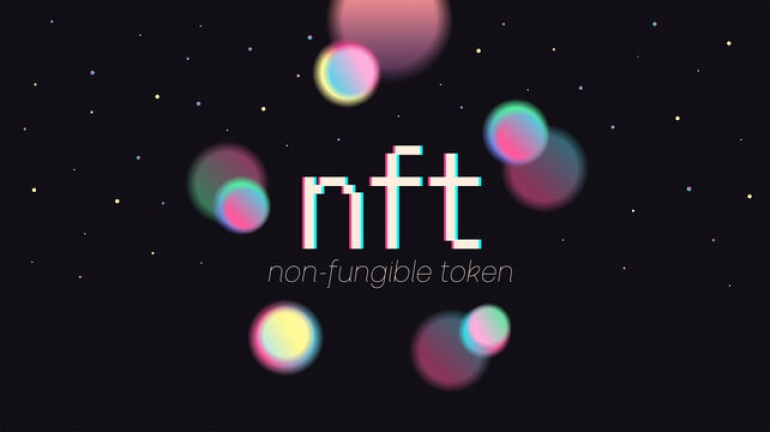Non-Fungible Tokens (NFTs) have taken the world by storm, revolutionizing the way we perceive and interact with digital assets. As NFTs continue to gain popularity, NFT marketplaces have emerged as essential platforms for buying, selling, and trading these unique digital assets. In this blog, we will explore the numerous benefits of NFT marketplace development, shedding light on how these platforms are empowering creators, collectors, and investors in the digital age.
Global Reach and Accessibility
One of the key advantages of NFT marketplaces is their global reach and accessibility. These platforms operate on blockchain technology, allowing users from different corners of the world to participate in the NFT ecosystem. Artists and creators can connect with a diverse international audience, and collectors can explore a wide range of unique digital artworks and collectibles from around the globe.
Democratization of Creativity
NFT marketplaces have democratized the creative industry by removing traditional gatekeepers and intermediaries. Artists and content creators can now directly showcase and monetize their digital creations without the need for art galleries, auction houses, or publishing houses. This level playing field gives independent creators an equal opportunity to gain recognition and financial success for their work.
Ownership and Authenticity
NFT marketplaces provide a robust and transparent system for verifying ownership and authenticity of digital assets. Each NFT is uniquely tokenized on the blockchain, making it impossible to replicate or counterfeit. This feature ensures that buyers can confidently invest in original and verified digital creations, assuring them of the authenticity and provenance of the assets they purchase.
Smart Contracts and Royalties
Smart contracts are integral to NFT marketplaces, allowing creators to embed royalty mechanisms directly into their NFTs. Whenever an NFT is resold or transferred to a new owner, the creator automatically receives a percentage of the transaction as a royalty payment. This feature ensures that artists continue to be financially rewarded for the ongoing success and value appreciation of their digital assets.
Liquidity and Secondary Market
NFT marketplaces create liquidity for digital assets by providing a vibrant secondary market for NFTs. Once an NFT is purchased, it can be freely traded, allowing collectors to buy, sell, or exchange their digital assets as they see fit. The availability of a secondary market enhances the overall value and appeal of NFTs, making them more desirable for investors and collectors.
New Revenue Streams for Brands and IP Owners
NFT marketplaces offer new revenue streams for brands and intellectual property (IP) owners. By tokenizing their assets as NFTs, these entities can tap into the growing NFT community and explore innovative ways to engage with their audience. This includes creating limited-edition collectibles, exclusive experiences, and digital merchandise, all of which can generate additional revenue and strengthen brand loyalty.
Decentralization and Transparency
Blockchain-based NFT marketplaces are inherently decentralized and transparent. Transactions and ownership records are stored on a public ledger, making them immutable and auditable. This transparency fosters trust among users, ensuring that every transaction can be traced and verified, minimizing the risk of fraud or manipulation.
Diverse Use Cases
NFT marketplaces are not limited to specific industries or use cases. They have found applications across various sectors, including art, gaming, virtual real estate, music, sports, and more. The versatility of NFTs allows for endless possibilities, empowering different industries to leverage the benefits of blockchain technology and digital ownership.
Opportunities for Investors
NFT marketplaces have opened up exciting opportunities for investors seeking to diversify their portfolios. Collectible NFTs and digital art have shown significant appreciation in value over time, attracting investors looking to capitalize on the growth potential of the NFT market.
Innovation and Collaboration
The NFT marketplace space is characterized by innovation and collaboration. Creators, developers, and investors are continuously exploring novel ideas and partnerships to create unique NFT projects. These collaborations foster a dynamic and creative environment, pushing the boundaries of what is possible in the NFT space.
Conclusion
NFT marketplace development has ushered in a new era of digital ownership, creativity, and investment. These platforms offer numerous benefits, including global accessibility, democratization of creativity, verifiable ownership, smart contract royalties, liquidity, and transparency. Moreover, they have expanded revenue opportunities for artists, creators, and brands while providing exciting investment prospects for collectors and investors. As the NFT market continues to evolve, NFT marketplaces will play an instrumental role in shaping the future of digital assets and redefining how we perceive and engage with the digital world.





Comments